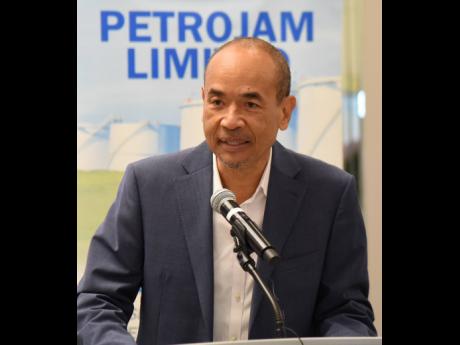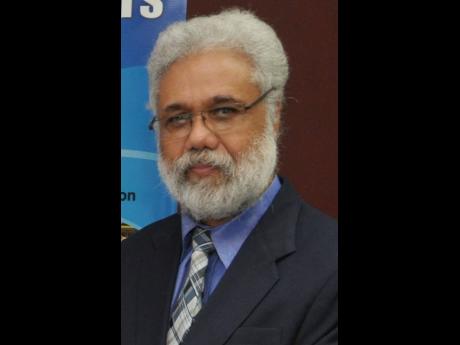Gas stoves ignite cancer concern
Calls for testing, monitoring to determine level of risk in Jamaica
Thousands of unsuspecting Jamaicans may be at risk of exposure to cancer-causing toxin benzene through the prolonged use of gas stoves, but the lack of any local air quality study in homes islandwide has prevented the crafting of government policy to foil or reduce this.
Ninety-two per cent of households across the island use gas stove for cooking, according to the Planning Institute of Jamaica’s 2019 Jamaica Survey on Living Conditions.
The widespread usage may be a cause for concern amid the latest study coming out of the United States that gas stove usage can raise the level of carcinogen benzene throughout the home to dangerous levels.
But Petrojam Limited, the company that produces cooking gas for usage in Jamaica, said that it is the consumers’ responsibility to ensure that their stoves are functioning properly.
Benzene is a colourless liquid with a characteristic odour and is primarily used in the production of polystyrene. It is highly toxic and is a known carcinogen and exposure to it may cause leukaemia.
The study, which saw the testing of air quality across 87 homes in the states of California and Colorado, was published last month in the journal Environmental Science & Technology. It aimed to measure benzene emissions from gas stoves and ovens.
It acknowledged that exposure pathways to carcinogen benzene are well-established from smoking, oil and gas development, refining, gasoline pumping, and gasoline and diesel combustion.
Additionally, it said combustion has also been linked to the formation of nitrogen dioxide, carbon monoxide, and formaldehyde indoors from gas stoves.
However, until now, no research had quantified the formation of benzene indoors from gas combustion.
The study found that natural gas and propane combustion emitted detectable and repeatable levels of benzene that in some homes raised indoor benzene concentrations above well-established health benchmarks.
It said that benzene produced by gas and propane stoves also migrated throughout homes, in some cases elevating bedroom benzene concentrations above chronic health benchmarks for hours after the stove was turned off.
Combustion of gas and propane from stoves may be a substantial benzene exposure pathway and can reduce indoor air quality, the study said.
Petrojam, in an emailed response to The Sunday Gleaner, said that the gas it sells to marketing companies is liquid petroleum gas (LPG), which comprises of a mixture of propane and butane gas.
The company said that they “may” contain traces of ethane and pentane.
“As these gases are odourless, for safety purposes an odourant, mercaptan sulphur is added to enable detection in the event of a gas leak. Petrojam’s LPG does not contain any benzene.
“The study shows that benzene is produced by the incomplete combustion of the cooking gas. The onus is on the stove owner to ensure that their stove is burning properly,” the company said.
Industrial Gas Limited’s (IGL) Managing Director Peter Graham declined comment when contacted by The Sunday Gleaner.
IGL, according to the Fair Trade Commission, is top two in terms of the largest distributor of LPG in Jamaica. The other is Trinidad and Tobago-based Massy, whose holding company late last year acquired IGL for $21.5 billion.
Lack of testing locally
Poison information coordinator at the Caribbean Poison Information Network (CARPIN), Sherika Whitelocke-Ballingsingh, told The Sunday Gleaner that there is no uncertainty about whether benzene is emitted from cooking gas locally.
She said that like the toxins people are exposed to globally because of climate change, cooking gas, too, produces harmful emissions.
“All of these toxins that they (researchers) speak to, they are emitted from the cooking gas. They are emitted; there’s no doubt about it,” Whitelocke-Ballingsingh said.
“In terms of the sampling methods ... in the US and in regard to the air-quality testing that was done there, they would have found levels that are above the threshold and that would cause health problems. In Jamaica, however, we do not do such monitoring. So for us to say [whether] we have a problem or not, we do not know,” she added.
Whitelocke-Ballingsingh said the infrastructure of homes in Jamaica compared to those overseas are designed differently in terms of ventilation, windows and the location of kitchens.
She said because of this, measurements in air quality will be relative.
“So we cannot definitively say that we have a problem in Jamaica because we have not monitored the situation in Jamaica, but we can say, ‘Yes, these toxins they are emitted from cooking gas. Yes, they will cause illnesses, different range respiratory illnesses and others once persons are exposed for over a particular period within any day to a prolonged time within their lives’.
“That, you can concretely say, because that’s how science is. Once you are exposed to a particular toxin above the threshold for prolonged period, it is going to affect your body. It will affect your body. But we cannot say we’re having a problem in Jamaica and because we’re having this problem we need this intervention immediately in our country. We cannot concretely say that unless we start doing air-quality testing within homes,” she stressed.
Environmental chemist Rashida Khan-Haqq put the risk of exposure down to a gas leak, but said that these are things householders should be checking in terms of their distribution lines.
She said that even if benzene is present, the quantity is key.
“Not all concentrations of benzene are toxic to us. It has to be a build-up. You’d have to be exposed to it for a particular time. So it’s not a straightforward ‘Yes, it is in there and yes, it’s going to be harmful to your health’,” she told The Sunday Gleaner.
Khan-Haqq said anything from a petroleum base may contain toxic elements, but it depends on the length of exposure.
She said whenever there is a petroleum spill, however, chemists check for benzene when looking at the level of contamination in the soil and the groundwater.
“So, we can say that the gasoline that we use possibly does have it. Again, it depends on how it was made in the first place whether or not [for] the separation process, the technology is good where we can literally separate the benzene out. It depends on the boiling point of benzene. So the chemistry behind it would have to be sound to reduce the amount that is coming into our fuel supply,” Khan-Haqq said, adding that there are several mitigating factors to ensure exposure is low, if at all.
Impractical to respond to every study, says Chen; academic notes monitoring would be useful
Petrojam Limited Chairman Wayne Chen said that it is “highly unlikely” that a study will be commissioned looking at cooking gas emissions in Jamaican households.
He said that health policy in Jamaica is guided by World Health Organisation standards.
Chen said if the study in California suggests that further study is needed, this will likely be done at the global level, where studies are conducted in different environments.
He said that it has to be a coordinated issue because of cooking gas’ usage globally.
Chen, who is also the chairman of the Southern Regional Health Authority, said studies of this nature emerge “hourly” and that it would be “highly impractical” for Jamaica to respond to all.
“One more study in Jamaica is not going to change the price of bread,” he told The Sunday Gleaner, noting that that study in California and Colorado would have already triggered similar studies globally.
“For Jamaica to now, based on a report out of California, to go and embark on its own study sets a precedent, that is just not practical. If we had a basis for concern, if we had our own health issues here that we could link to cooking gas, it may trigger our study, and then that would go to PAHO (Pan American Health Organization). It would go to CARPHA (Caribbean Public Health Agency). It would go to the World Health Organisation,” Chen asserted.
He insisted that Jamaica cannot “just” respond to a study done in California.
“Policy has to be driven by data, but it also has to be practical and sensible. This is not a Jamaica issue; this is a global issue. So we are also guided by other studies that are taking place all over the world,” he said.
However, Paul Reese, a University of the West Indies professor emeritus of bioorganic chemistry, has indicated that “it would be useful to monitor the gases produced in local industry and in the home, and share the results of such an investigation with the regulators and general public”.
Asked about the composition of LPG and whether households could be exposed to benzene, Reese answered in the affirmative.
He said that benzene could be generated in small quantities from gas stoves where the propane and/or butane fuel is incompletely burned.
“In such situations, persons in the household could be exposed to benzene,” he said.
The professor said that the country should be concerned about the effects of products of incomplete combustion of propane and/or butane fuels in areas with poor ventilation.
He said in many households where there is free airflow, this would not be a serious problem; however, in enclosed environments, it could be.
Reese said while he is not a toxicologist, it is well known among organic chemists that benzene is a carcinogen, causing leukaemia in humans after long-term exposure.
Whitelocke-Ballingsingh said because of the absence of a study, the precautionary principle must come into play. She cautioned against turning a blind eye. If it is known that there is a health problem that could be caused from something and it is known scientifically, you put all the precautionary measures in place to alleviate the exposure or to eliminate it if possible, she reasoned.
“That is what you do in a situation like this. You apply precautionary principle because we will never be able to test or monitor everything. By the time we would be able to get the money to do that, a lot of persons would be sick and we would die.
“So if there are evidence to show that if you are exposed to this over a particular period of time this will happen to you, whether you test the environment or not, you try to ensure that the human body is not being exposed to it,” she said.
Whitelocke-Ballingsingh said for people who will say that they have been cooking for years and they have never had an issue, they really do not know.
She said people who do not have a particular background in public health will say that they have been doing these practices for years and nothing has happened “but they can be diagnosed with something after 10 years and they did not know that all of these practices they add up.
“If we’re not able to test for chemical traces in urine and in blood, we can only treat on manifestations, but we cannot definitively say that this is caused from that because we don’t have all the diagnostic machines and laboratory equipment and capacity to do so,” she said.




